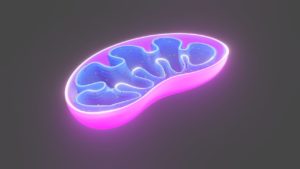Systems biology is an interdisciplinary field that combines biology, computer science, and other fields to understand the complex interactions within cells and organisms. Systems biology is used to study the effects of drugs and treatments on the body. Systems biology also helps scientists understand how the environment affects our bodies.
Systems Biology allows scientists to create predictive, multiscale model to discover new biomarkers. This capability enables them to stratify patients by unique genetic profile, and target drugs and treatments.
Systems Biology is an interdisciplinary field that focuses on understanding how living organisms function as a whole system. It involves studying interactions among genes, proteins, cells, organs, tissues, and organisms. Systems biologists study these interactions using mathematical models and computational tools.
Systems biology is an interdisciplinary field
Systems Biology is an interdisciplinary field that combines knowledge from various fields such as biology, chemistry, mathematics and physics to understand the complex interactions within a system. Systems biology helps us understand how cells work together to create tissues, organs and organisms. Systems biology also helps us understand why diseases happen and what we can do about them. Systems biology uses mathematical models to simulate the behavior of biological systems, allowing scientists to test hypotheses and make predictions about how the system works.
Systems Biology is an interdisciplinary field that combines computer science, mathematics, engineering, chemistry, physics, and biology. It studies how cells and organisms function as networks of genes, proteins, metabolites and other molecules. This approach allows researchers to understand the complexity of living things. It also helps them develop new ways of detecting diseases and designing better treatments.
Systems biology studies the complex biological processes
Systems biology is a branch of science that studies how complex biological processes work together as a whole. A system is a collection of parts that interact with each other. Systems biologists study these interactions by analyzing the behavior of large numbers of cells or molecules. Systems biology is based on the idea that understanding the workings of the body requires understanding the interactions between its various components.
The goal of systems biology is to develop a comprehensive picture of how the body works at a cellular level. Scientists use this knowledge to design therapies that will treat diseases effectively.
Natural vs artificial systems biology
A natural ecosystem is very different from an artificial system. Artificial systems are designed to produce a specific result. Natural systems are more complex than artificial ones because they require many parts working together. Natural systems also have feedback loops to maintain the stability of the system.
A system can be classified as open, closed, and isolated depending on how much it exchanges with the surroundings. For example, boiling water in an uncovered vessel is an open system because there is an exchange of heat with the surrounding air. Boiling water in a tightly covered vessel is a closed system because the heat is exchanged with the liquid inside the pot but not with the air around the pot.
A living organism exchanges energy and matter with the surrounding environment, therefore it is an open system. The thermos contains hot water, but there’s no exchange of heat and steam between the air and the liquid. Hot water is contained; energy cannot leave the container and no matter can enter through it. Thus, the system is isolated.
In the isolated system, there is no interaction between the elements. An example would be the universe, where everything is separate from each other.



